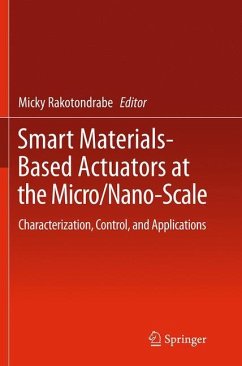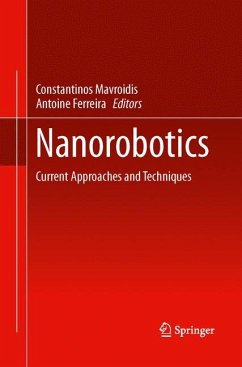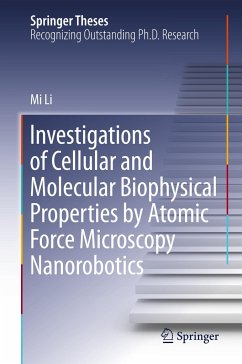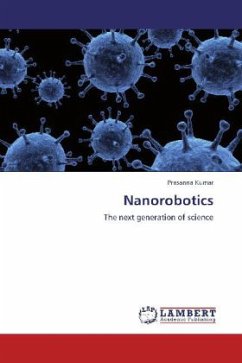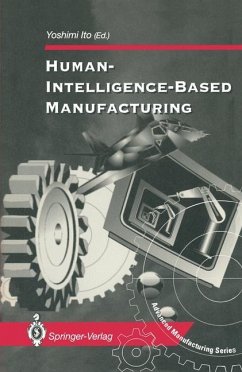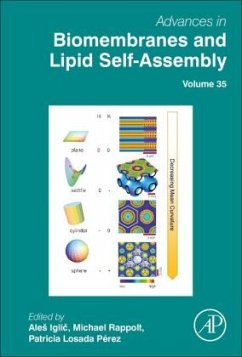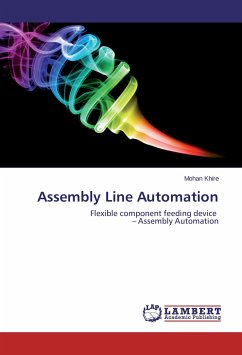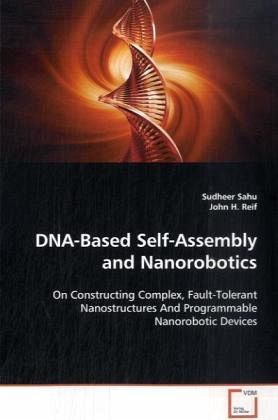
DNA-Based Self-Assembly and Nanorobotics
On Constructing Complex, Fault-Tolerant Nanostructures And Programmable Nanorobotic Devices
Versandkostenfrei!
Versandfertig in 6-10 Tagen
39,99 €
inkl. MwSt.

PAYBACK Punkte
20 °P sammeln!
We study the following fundamental questions in DNA-based self-assembly and nanorobotics: How to control errors in self-assembly? How to construct complex nanoscale objects in simpler ways? How to transport nanoscale objects in programmable manner? In our quest to answer these questions, we present a comprehensive theory of compact error-resilient schemes for algorithmic self-assembly in two and three dimensions, and discuss the limitations and capabilities of redundancy based compact error correction schemes. We present a time-dependent glue model for reversible self-assembly model. We can as...
We study the following fundamental questions in DNA-
based self-assembly and nanorobotics: How to control
errors in self-assembly? How to construct complex
nanoscale objects in simpler ways? How to transport
nanoscale objects in programmable manner? In our
quest to answer these questions, we present a
comprehensive theory of compact error-resilient
schemes for algorithmic self-assembly in two and
three dimensions, and discuss the limitations and
capabilities of redundancy based compact error
correction schemes. We present a time-dependent glue
model for reversible self-assembly model. We can
assemble thin rectangles of size k×N using O
(logN/loglogN) types of tiles in our model. We
present a framework for a discrete event simulator
for DNA-based nanorobotical systems. We design a
class of DNAzyme based nanodevices that are
autonomous, programmable, and require no protein
enzymes. In addition to these, we also attempt to
harness the mechanical energy of a polymerase 29 to
construct a polymerase based nanomotor that pushes a
cargo on a DNA track.
based self-assembly and nanorobotics: How to control
errors in self-assembly? How to construct complex
nanoscale objects in simpler ways? How to transport
nanoscale objects in programmable manner? In our
quest to answer these questions, we present a
comprehensive theory of compact error-resilient
schemes for algorithmic self-assembly in two and
three dimensions, and discuss the limitations and
capabilities of redundancy based compact error
correction schemes. We present a time-dependent glue
model for reversible self-assembly model. We can
assemble thin rectangles of size k×N using O
(logN/loglogN) types of tiles in our model. We
present a framework for a discrete event simulator
for DNA-based nanorobotical systems. We design a
class of DNAzyme based nanodevices that are
autonomous, programmable, and require no protein
enzymes. In addition to these, we also attempt to
harness the mechanical energy of a polymerase 29 to
construct a polymerase based nanomotor that pushes a
cargo on a DNA track.



